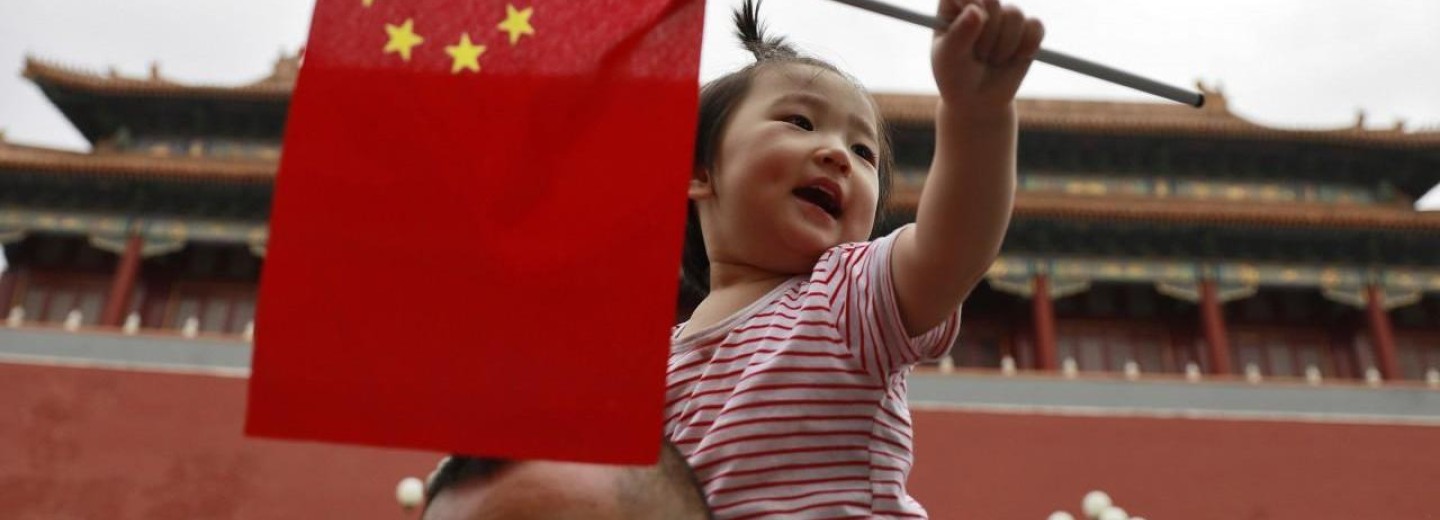China news 17th May 2021
In our news this week, our first story asks why the ‘saviour’ of the last Emperor, did not challenge the emperor and take over himself. The reason has a lot to do with the influence of Confucius as our post on 6th May recounts.
After the Opium Wars between the UK and China, the Qing Dynasty faced huge internal and external troubles. The treasury was empty, tax revenues were decreasing, and taxation is getting higher and higher. Government officials were stealing from the country and the common people.
The Taiping Rebellion affected more than ten provinces and controlled half of China. At the time of crisis, Zeng Guofan worked tirelessly to turn the tide and save the Qing Dynasty from destruction. People may wonder, why did not Zeng Guofan lead his army northward, to become Emperor?
He could easily have done so. However, it was impossible for him to do it.
Since the establishment of a unified China, the leaders of dynasties were mainly two types of people. The first type is the ruling class of the previous dynasties. The second type is the small people at the bottom. The first type has the political advantages and military resources to change dynasties. The second type of people have the need and determination to destroy all old systems and rebuild a new order.
But Zeng Guofan did not belong to either of these two types of people. Although he was a high-ranking bureaucrat with the second grade of officialdom, he did not enter the top core circle of Qing Dynasty politics and lacked political advantages. Although he was born in a poor peasant family, through the imperial examination and his own efforts, he became one of the senior bureaucrats, lacking the need and determination to change the dynasty.
A person’s origin determines his interests. His interests determine his way of doing things. Zeng Guofan was cautious throughout his life and never took the risk of using surprise as a weapon. Becoming emperor can bring huge benefits, but the price paid is also extremely high. Zeng Guofan succeeded in suppressing the Taiping Rebellion. But he was an extremely honourable minister, so he would not take risks.
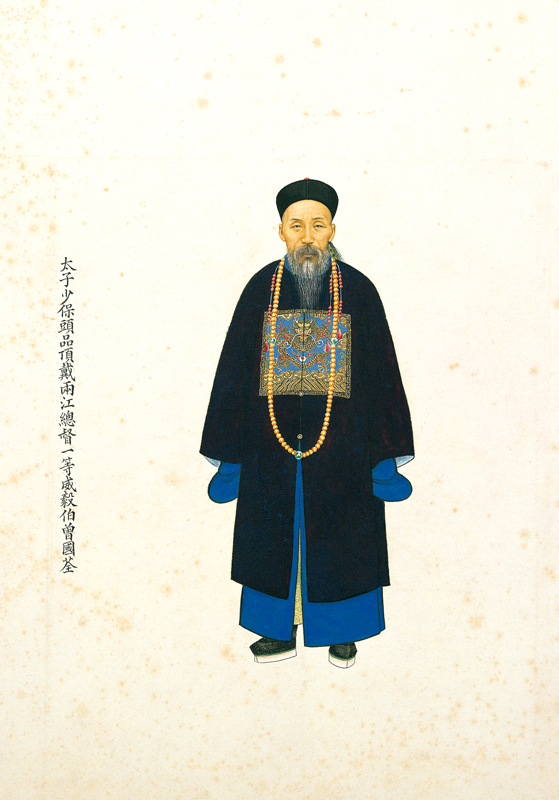
Zeng Guofan was deeply influenced by Confucianism. He studied Confucianism all his life and practised it himself. Loyalty was the foundation of his thoughts. People like him are the pillars of an imperial court. It was impossible for him to oppose the emperor and the monarchy.
Second, Zeng Guofan was constrained by his profoundly moral character. A moral character is a restraint on anyone. When there are more constraints, there are more concerns; when there are more concerns, the ability to act decreases.
Third, Zeng Guofan believed in hard work throughout his life and suppressed the Taiping Heavenly Kingdom by being tough and durable. He was never willing to be flexible.
Combining the two aspects of birth and temperament, Zeng Guofan clearly did not have the characteristics of a monarch. Even if he had risen to it, it would not end well for him.
During his life, Zeng Guofan achieved immortality in virtue, speech, and meritorious service. He was also a man of great political wisdom, successfully dispelling the dowager Empress’s suspicion. His family was always prosperous. This is what he wanted.
At the age of 61, he passed away peacefully as the governor of Liangjiang. The court granted him a posthumous title of ‘Earl’.
Source: history.ifeng.com.
Potential problems are being exaggerated
Chinese media, as. much as western media, are pre-occupied by the slow growth of China’s population. This article makes clear that potential problems are being exaggerated.
Statistics show that China’s population has continued to grow slowly for the past 10 years. The country’s population is aging, and China will continue to face the pressure of population development in the future.
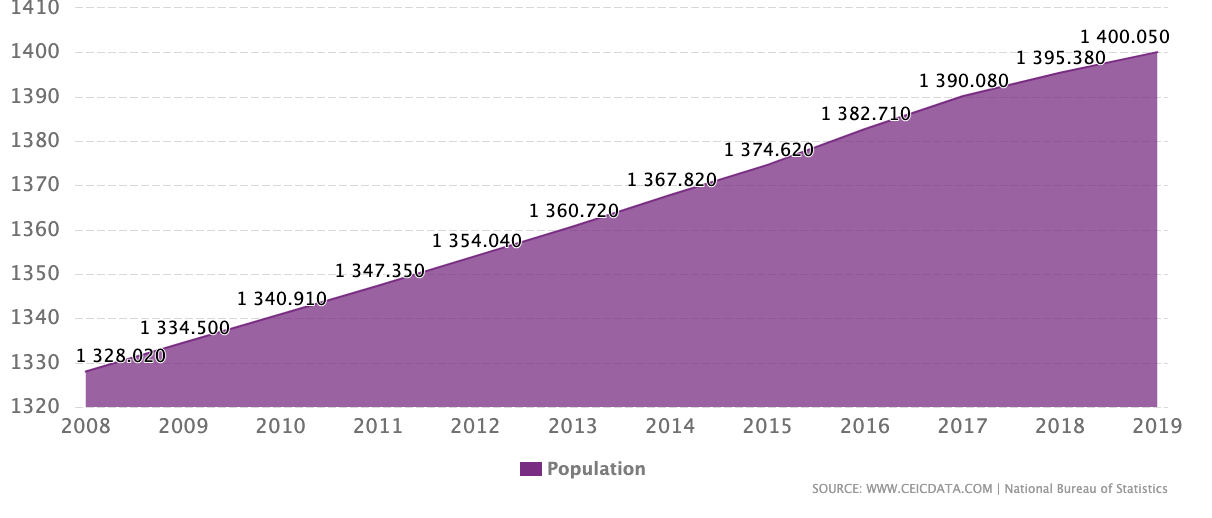
What will be the impact of increasing aging and other trends on China’s future economy and society, and how should we deal with it? What trends in China’s economic development are also reflected in the census?
This journal interviewed Yao Yang, dean of Peking University’s National Development Research Institute and director of Peking University’s China Centre for Economic Research.
Yao Yang: The biggest change is that the proportion of the working-age population between 16 and 65 has dropped significantly. The proportion of the population aged 60 and above rose by 5.4 percentage points. The proportion of children in the population rose slightly.
At the same time, the data also showed the imbalance of population distribution. The population of Northeast China has declined more, while Guangdong has increased its population more. The population of coastal areas is increasing, which is easy understand. The concentration of population and economic activities in urbanized areas is in line with economic laws.
However, the impact of an aging population has been exaggerated. It is generally believed that the biggest challenge is the reduction of labour force. But the development of today’s automation and artificial intelligence technology has exceeded our expectations. Our figures show that, due to the rapid development of automation and artificial intelligence in the next 30 years, the labour force that it can replace will far exceed the size of the labour force caused by the aging of the population. Therefore, the decline in labour supply brought about by the aging population will not have much impact.
At the same time, the education level of young people is much higher than that of the current retirement population. Labour productivity of people in the 20-30 age group is about twice as high as that of those who are about to retire. Therefore, the impact of population aging on production activities has been exaggerated.
Population aging is a global trend and not unique to China. The elderly consume relatively little, therefore, some believe that the aging population will exacerbate the decline in consumption. Japan is typical in this respect.
However, we have calculated that urbanization can compensate for the decline in consumption. In the next 15 years, China will increase the population of urban residents by 15%. The relocation of these people from the countryside to the city will increase consumption.
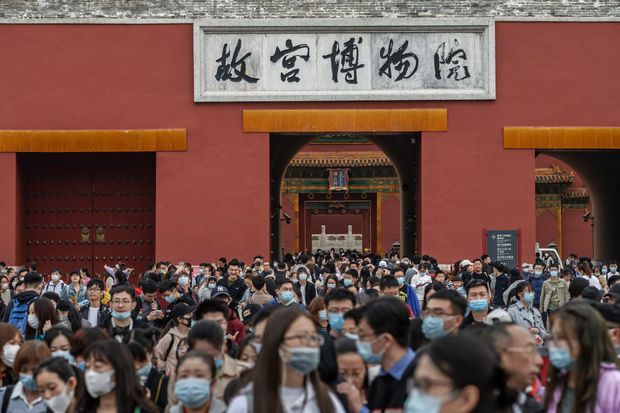
The biggest impact of population aging is in pension funding and medical insurance. At present, the government’s pension and medical subsidies are very large. As the population ages, subsidies will increase further, especially in rural areas. This will increase the burden on the government.
We must accelerate the reform of the transfer of state-owned capital to social security and increase the size of the social security fund. This is a precautionary measure. Then, we must accelerate the delay of the retirement age. We also need to increase overall national planning. At present, some poverty-stricken areas have pension deficits, some southern provinces and cities have surplus pensions. It must be coordinated better in the future.
These are things that should be done immediately.
Source: news.ifeng.com.
Effect of Beijing’s moves to stabilise Hong Kong
Hong Kong has been fascinated by a recent case in which a top police official from Hong Kong, has been suspended for visiting an unlicensed massage parlour. He is now under internal investigation. This article believes that this is an unwelcome side effect of Beijing’s moves to stabilise Hong Kong.
After the national security legislation and a series of “improvement” projects in Hong Kong’s electoral system, the low-end pro-Beijing faction declared that Hong Kong can “start anew, improve people’s livelihood, and develop the economy.” The subtext is that Hong Kong was “too politicized” in the past. Once heavy rectification is done, the “noisy” phenomenon will leave Hong Kong.
The facts are exactly the opposite of political propaganda. After heavy-handed rectification, Hong Kong will fall into even greater “noisiness”.
Hong Kong’s National Security Director, Frederic Choi Chin-pang, was accused of “visiting an unlicensed massage shop” and was investigated internally. Some media said that it was the police who went to the massage shop to check the license plate and found that the Director of National Security was receiving a massage inside. It is also said that Frederic Choi’s affairs have been circulating internally for a month. It is conceivable that the publication of this story required long-term consideration because the person involved is at the top of the Police Pyramid.
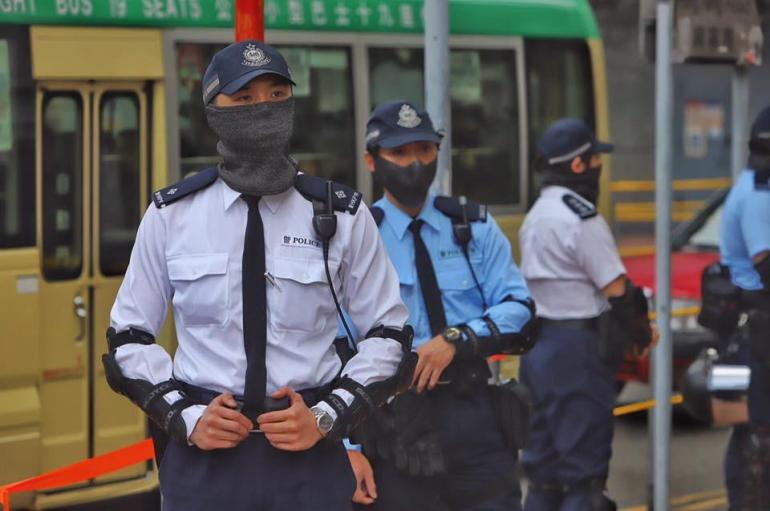
However, we may never know the truth of the matter. Was Frederic Choi’s visiting an unlicensed massage shop accidentally exposed by the frontline police, or were there other reasons? Does Frederic Choi really patronize unlicensed massage shops? According to the “presumption of innocence”, he has not been convicted. At this stage, he should be treated as if he did not patronize, but the result of the incident is that the pro-Beijing groups are quiet while the democrats are excited.
After Hong Kong’s return to China, political struggles will never be far away from Hong Kong because the firewall of “one country, two systems” has been removed. Now Hong Kong will sneeze whenever Chinese politics catches a cold. The fight for power will be more intense.
The establishment has always believed that the pan-democrats are “noisy” in the Legislature, causing social instability. In fact, the parliament is like playing the World Cup. Everyone fights in the arena, but seldom kill people. Now the power struggle will be staged in the institutions that truly exercise power, and the outcomes may be even more brutal.
In the past, the power of Hong Kong society was decentralized to a certain extent. China believed that this was not easy to control and was a bomb left over by colonialism. For example, ordinary courts cannot guarantee 100% convictions, so they must set up a national security law court with designated judges. For the police, they must set up a national security office. These are all major operations and the establishment of special powers over conventional mechanisms.
The conventional Hong Kong establishment that had power in the past, such as judges, officials, parliamentarians, and the police force, have undoubtedly been deprived of power. The new ‘special authority’ was originally used to deal with democrats. However, the ‘special authority’ is like a Pandora’s box, which will attract the thieves of the world.
In the past, the power was relatively scattered. That is, the treasures in each treasure chest were not so huge, and the controversy and infighting caused were relatively less deadly. The Chinese traditionally believe that to deal with a disputed world, it is necessary to concentrate power as much as possible to do big things.
Yet, China’s civil wars seem to be crueller as each dynasty takes over.
During the Warring States Period, mobilizing hundreds of thousands and hundreds of thousands of people was already a major trend. In the Ming Dynasty, where the national system was highly unified, civil wars and power struggles were so frequent that they were almost meaningless.
At the end of the Ming Dynasty, Emperor Zhang Xianzhong was defeated and fled to Sichuan, where he continued to kill and plunder. Modern people are still discussing how many people were killed, but they generally agree that there were only a few people left in Sichuan. Later, the Manchus who took over had to transfer people from other provinces to Sichuan, otherwise Sichuan would be empty, and the land would be deserted.
There can be no bloodier political struggle than in a place where power is becoming more concentrated. When promising the “perfect election,” some people will use the metaphor of “back to basics”. In our opinion, this is not a step back, but a step toward the edge of the cliff.
The political struggle in Hong Kong can only move to a higher level, deeper and broader. The election of the chief executive is coming soon. In the future, both yellow and blue shirts (democrat and pro-Beijing) will miss one thing: the quarrels in the Legislature or even on the streets are civilized struggles. Political reporters need to worry about everything. However, they do not need to worry about this matter: there will be lots to report on in the future!
Source: thestandnews.com.
Worked on the article:

Wanlikhang


